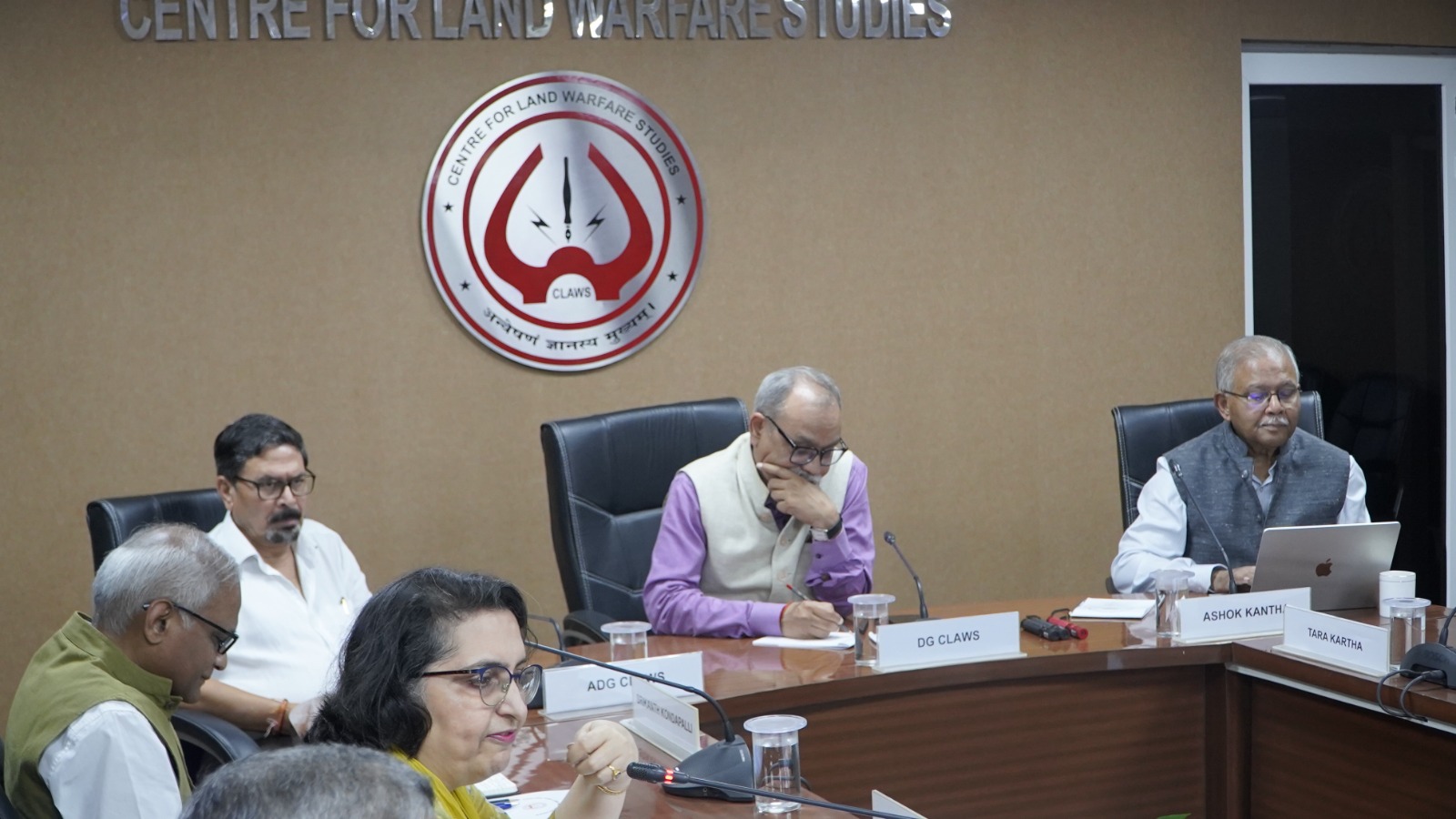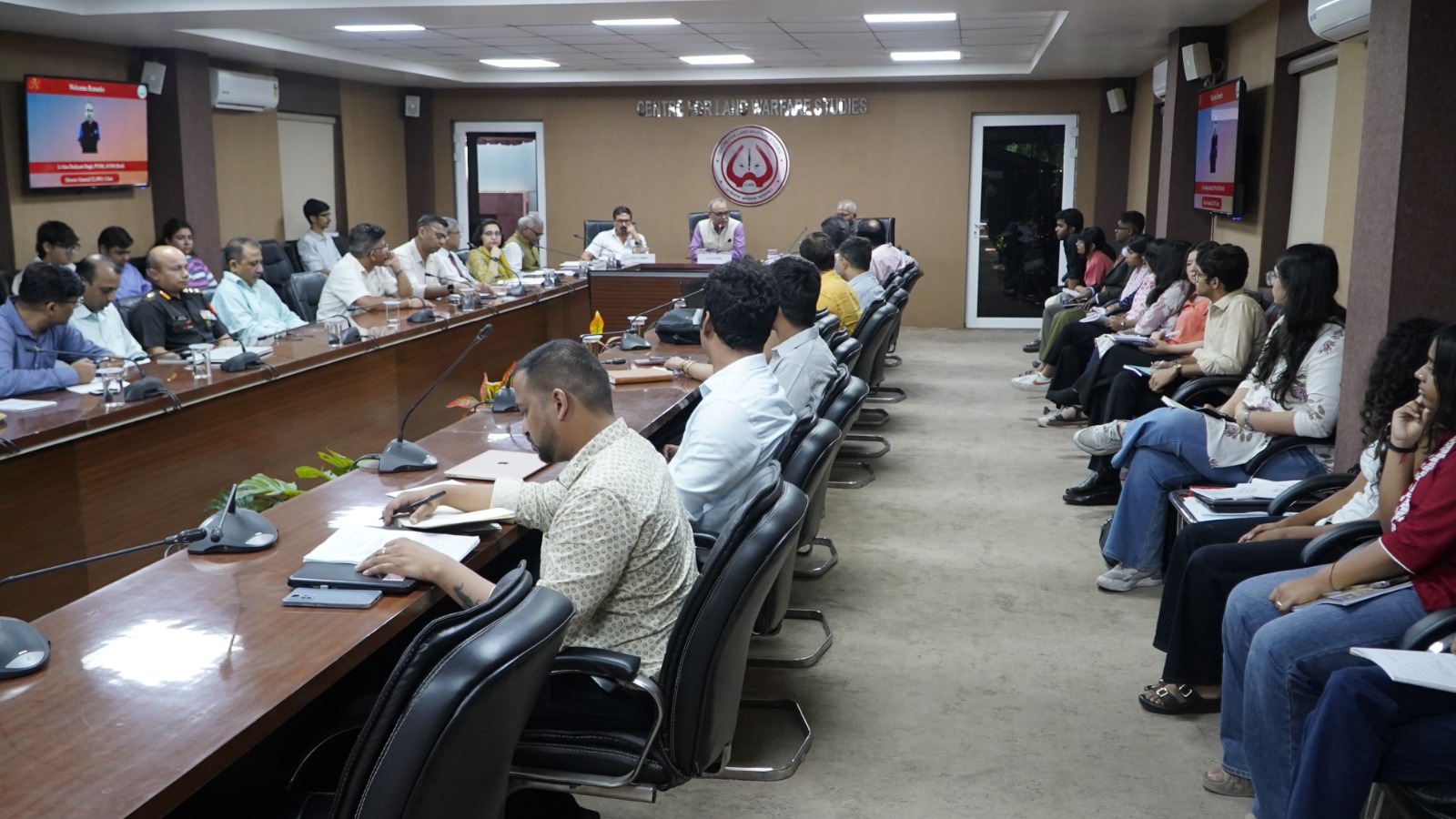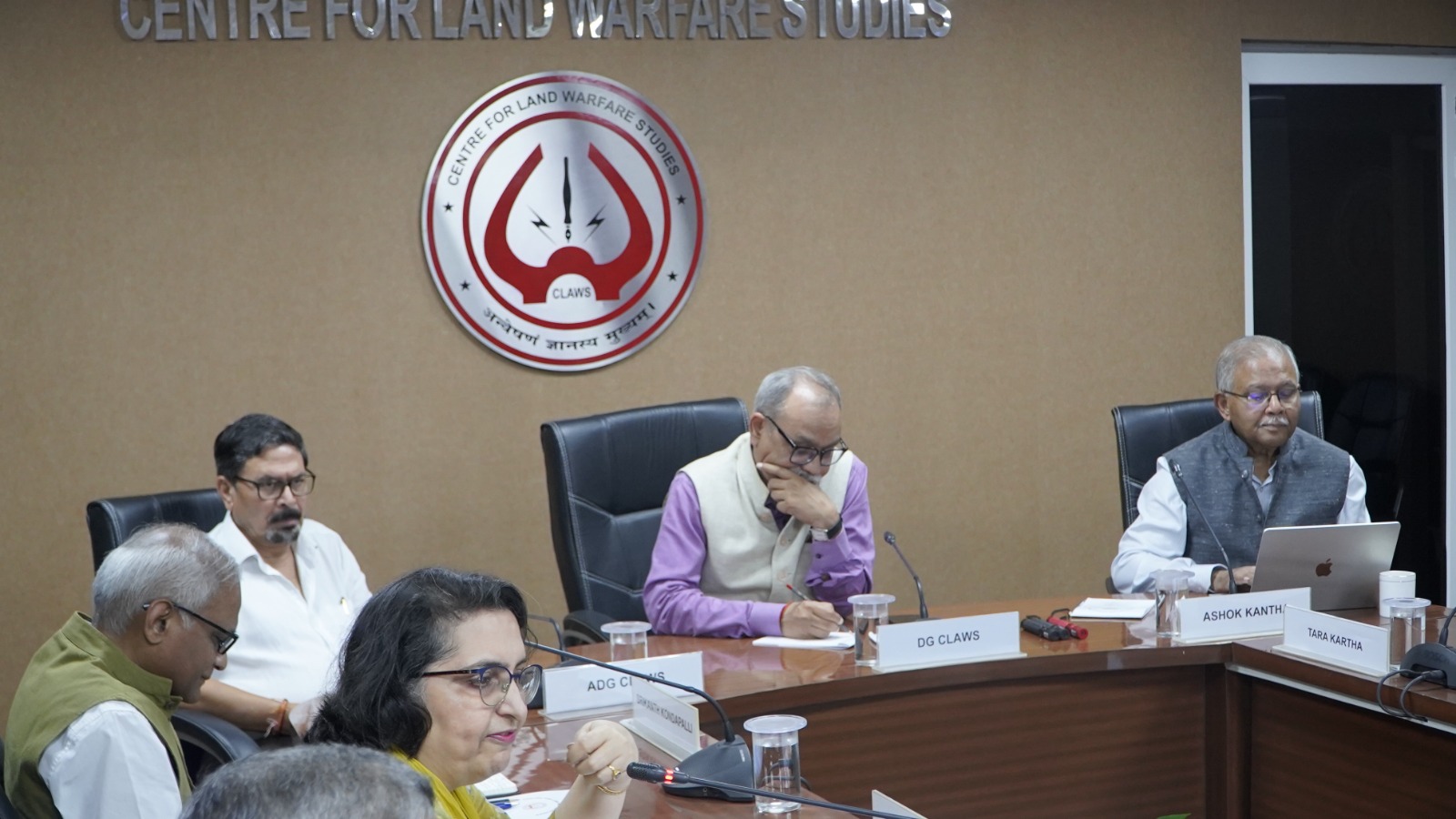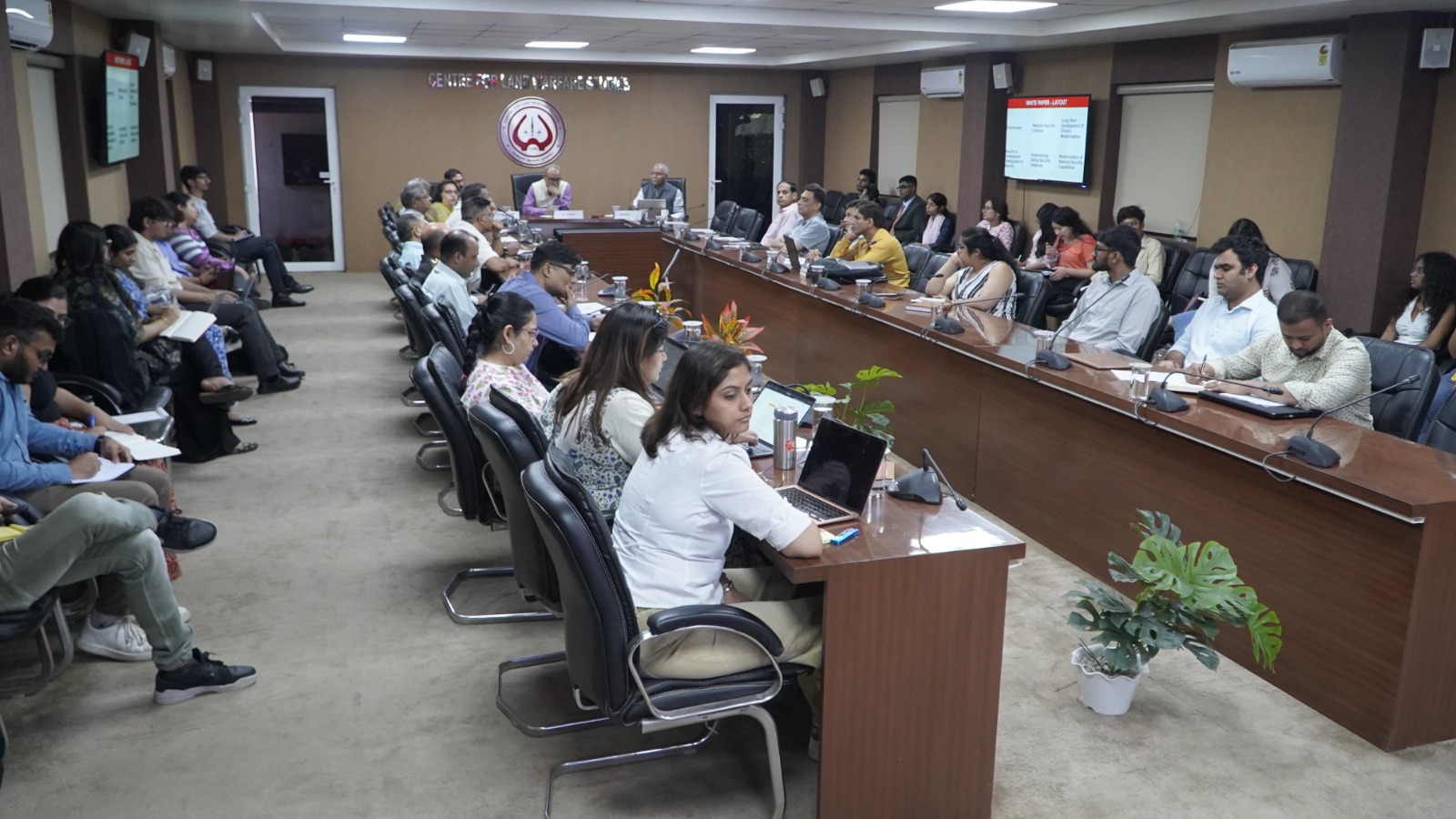EXECUTIVE SUMMARY
The Round Table Discussion (RTD) on Analysing the New White Paper: China’s National Security Concept in the New Era at the Centre for Land Warfare Studies (CLAWS) brought together key perspectives from Dr Roshan Khanijo, Ambassador Ashok Kantha (Retd.), and Professor Srikanth Kondapalli to assess China’s new approach to national security and the trajectory.
Dr Roshan Khanijo outlined the key features of the White Paper, China’s framing of “big security” – which now consists of 20 types of securities. The importance given to the national development in the new national security concepts. Dr Roshan further highlighted China’s approach to blend both traditional defences with emerging security threats. The blind is more visible in the national security and national interests. The focus on one of the highlights – the space given to the Global Security Initiative (GSI) and common security is targeted towards the external audience. focused
Ambassador Ashok Kantha provided a diplomatic perspective while noting that China’s new national security concept was mostly intended for domestic audiences. Ambassador Ashok noted the White Paper’s criticism of external interference, particularly targeting the growth of security, defence, and military partnerships in the Indo-Pacific region. This session observed China’s push for unity with the Global South, and its assertion of non-negotiable “red lines” on national security. The interesting observation was the difference in tone on most emerging security threats, implying some possibility for negotiations if such discussions benefit China’s interests.
Professor Srikanth Kondapalli’s reading on White Paper rightly noted that, unlike the focus of the National Defence white papers, the focus here is more on national security and internal issues. In essence, one should look at it as purely an internal security White Paper and does not offer much about defence issues. The attempt to align high-quality development with national security goals emphasises China’s transition to a “holistic security” paradigm from the “overall security”. Professor Srikanth highlighted the White Paper’s focus was on regime security and internal politics. The new concept again highlights the all under a centralised leadership framework on national security work of the CPC. This session took note of the relationship between Beijing’s broader strategic understanding and security dilemma on the risks posed by increasing regional tensions in the Taiwan Strait, South China Sea, East China Sea and unresolved border issues with neighbours.
The RTD underscored the growing intersection of political, technological, and military domains in China’s security thinking and its potential implications for regional and global stability.




















